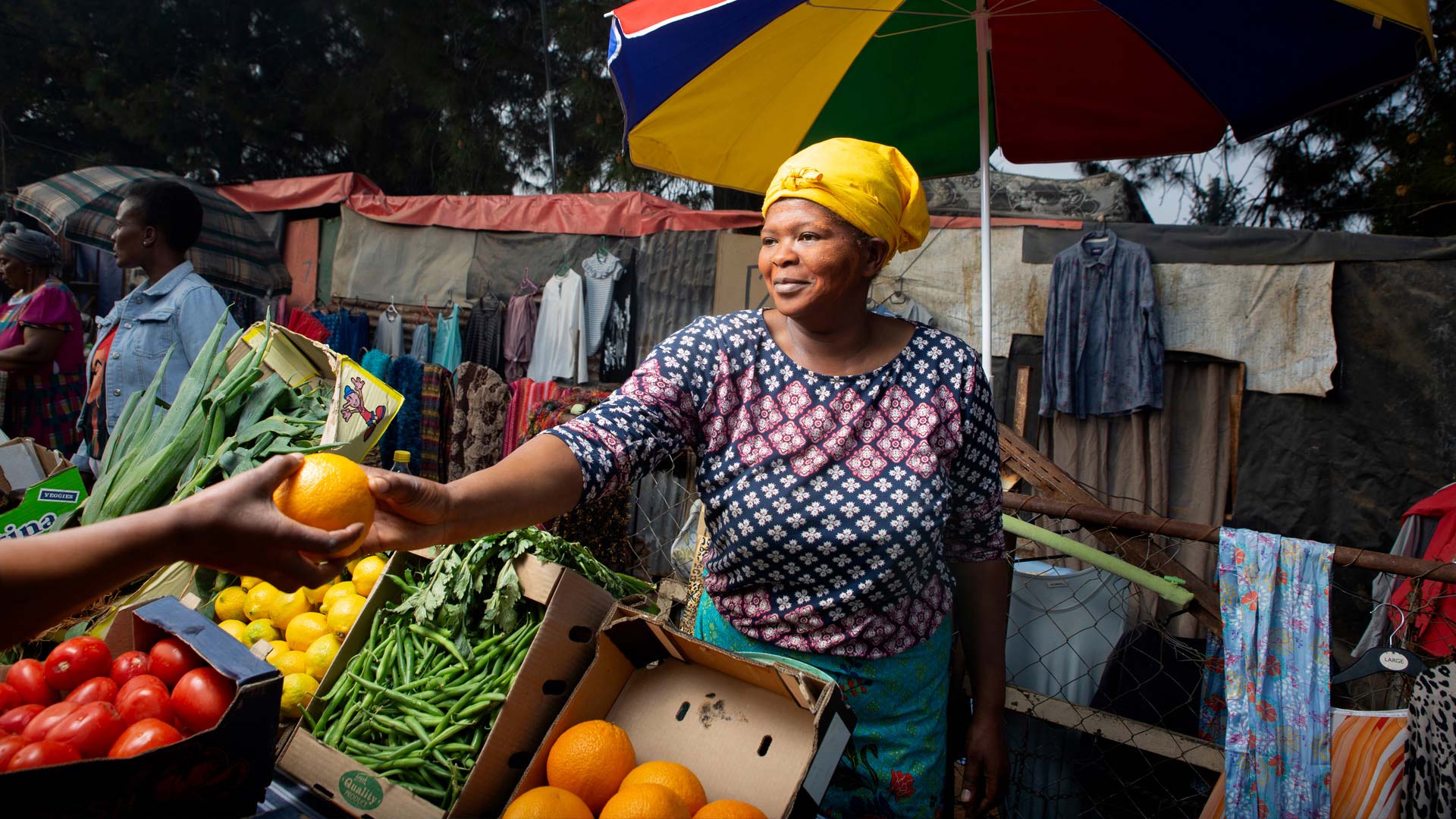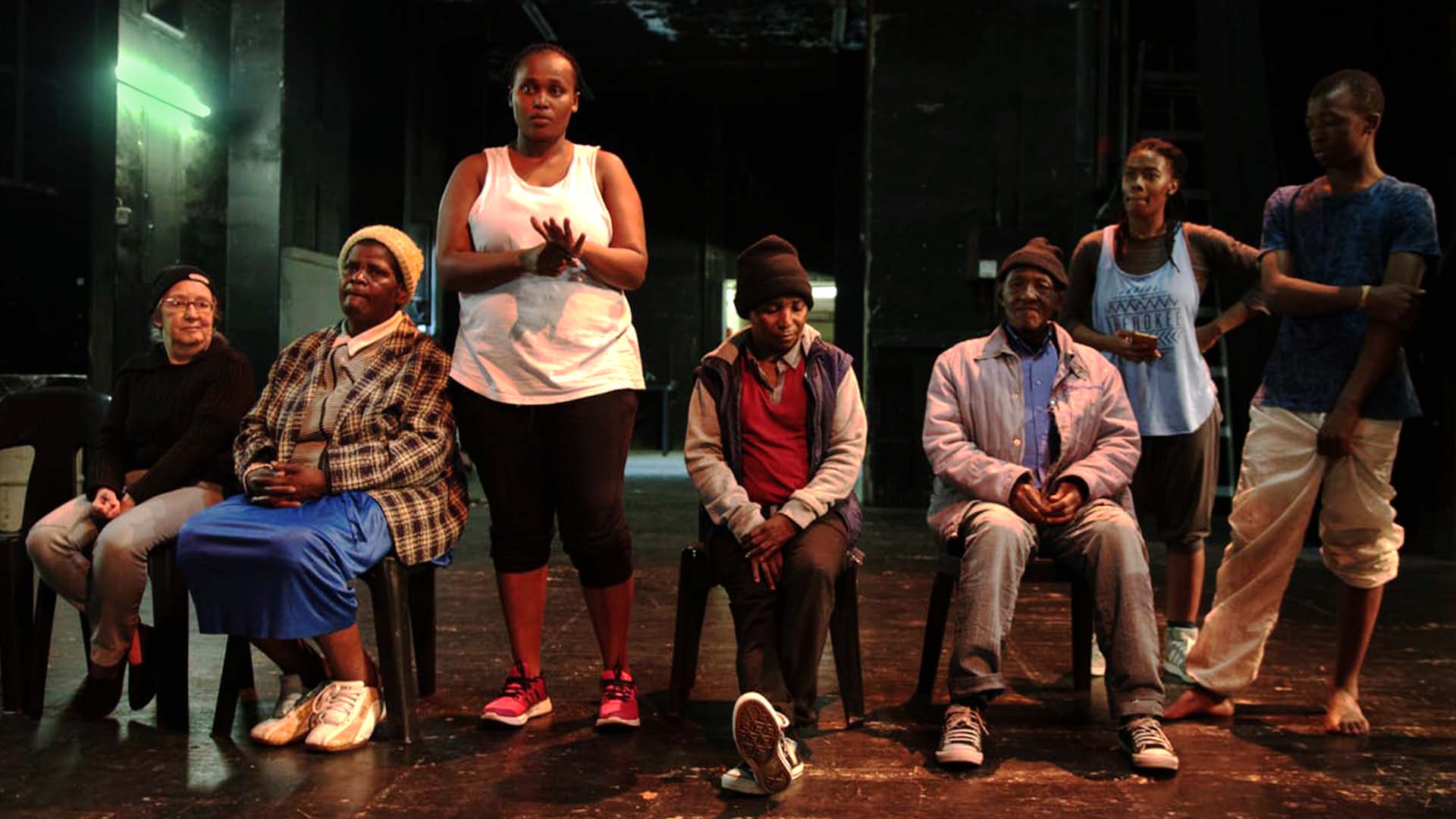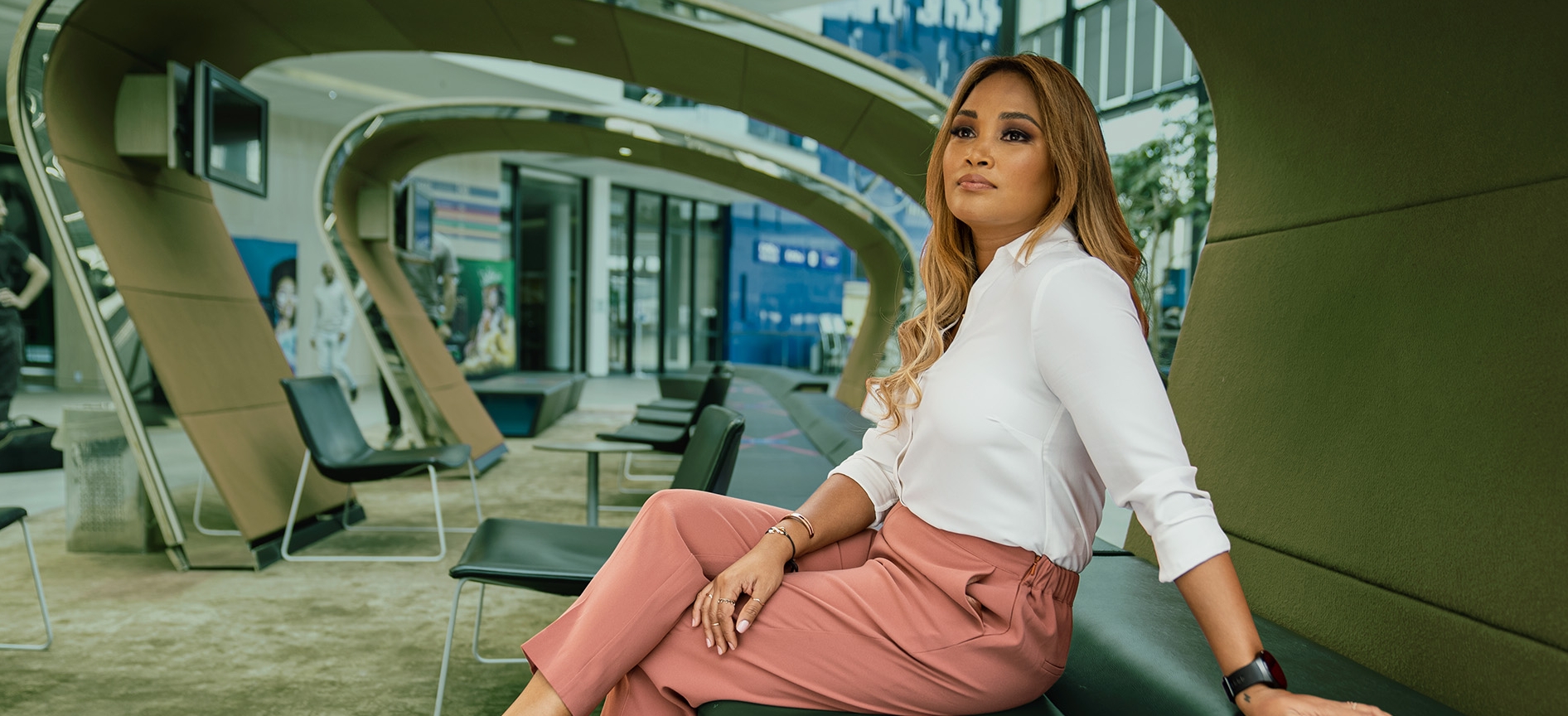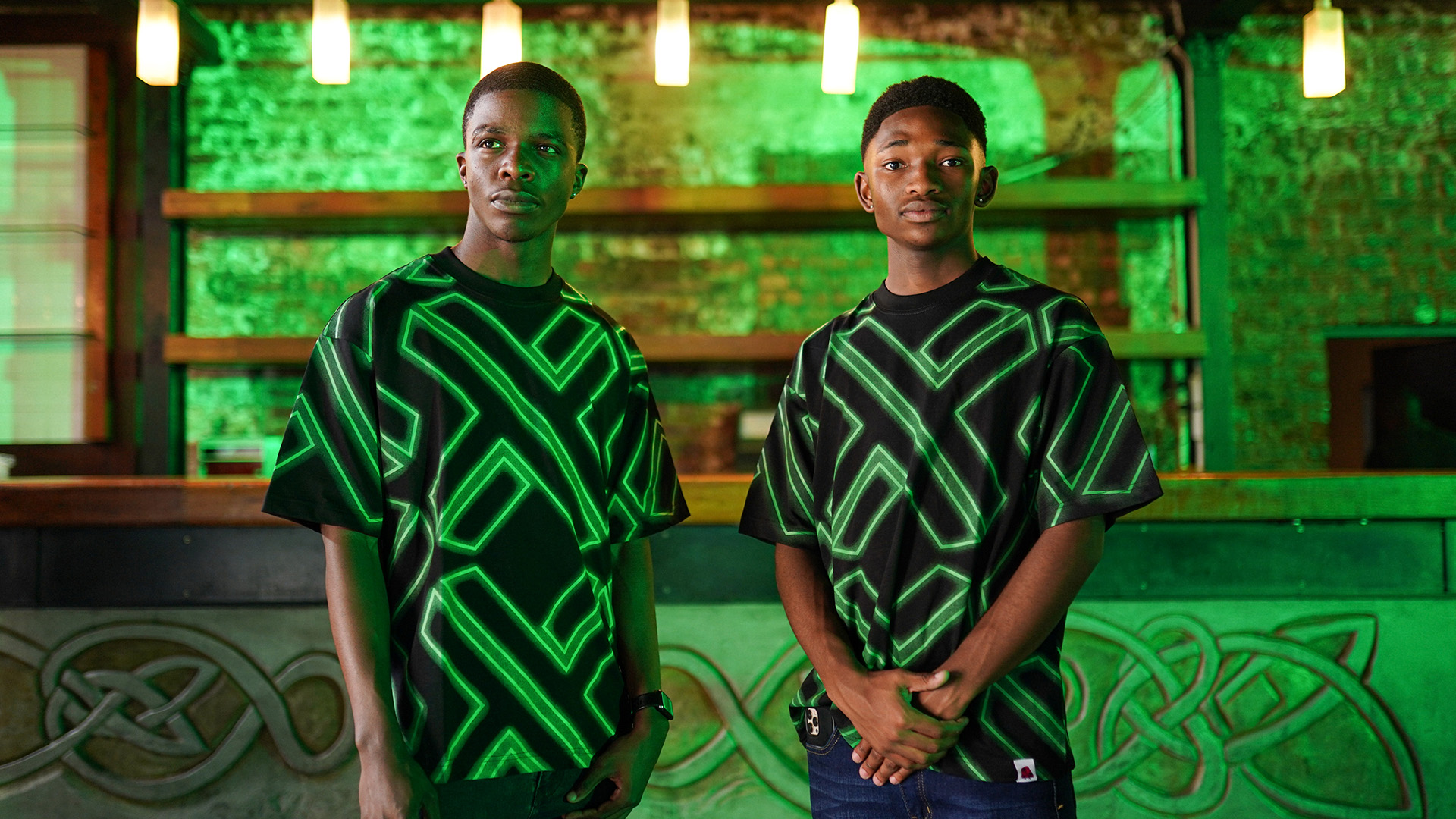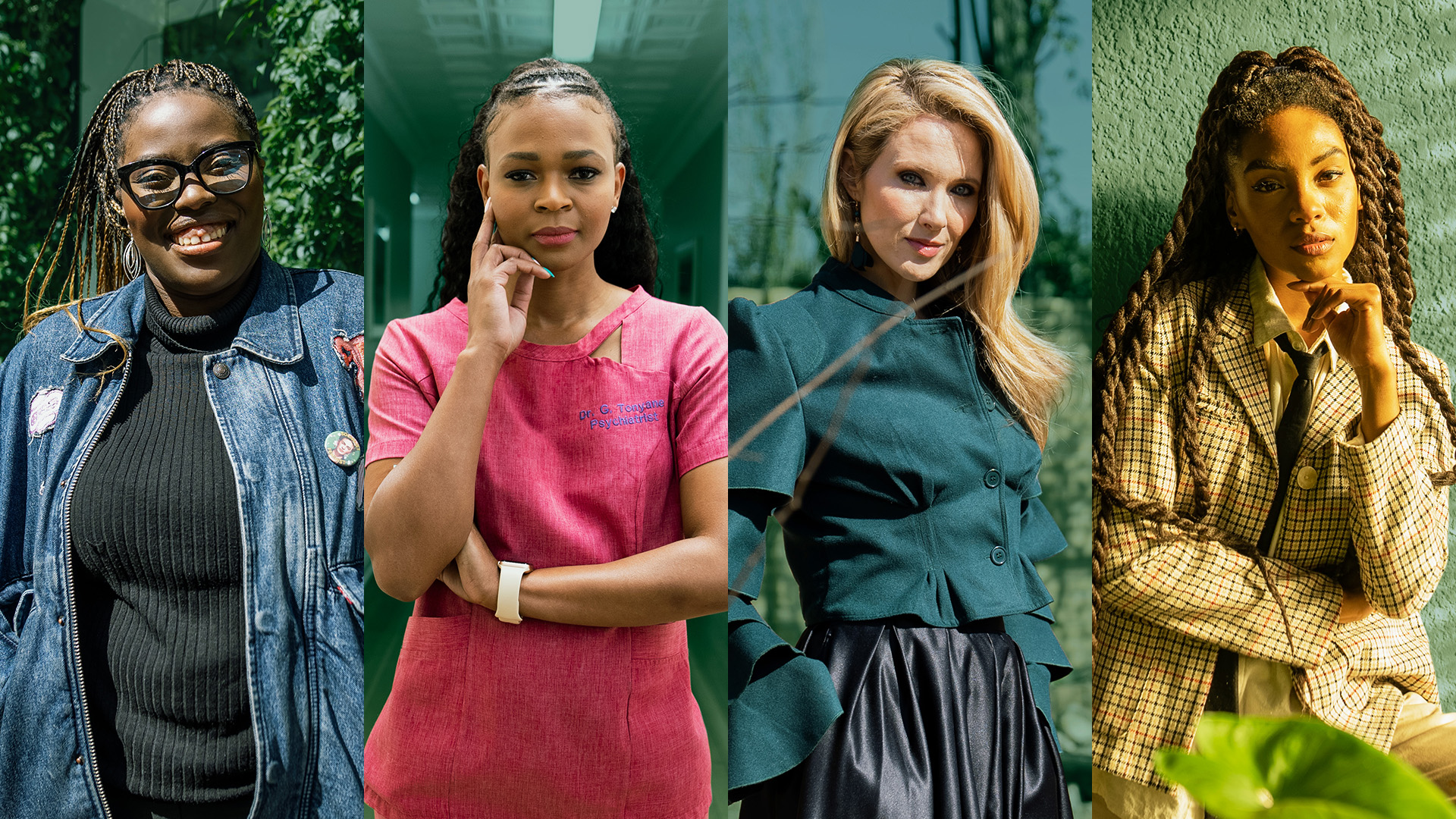Theatre director and actor Gcebile Dlamini is graduating with distinction for her master’s degree through Wits University’s Drama for Life programme this year. It is through her intergenerational work that she brings together young people, the elderly and the blind to find their voices and narrate their personal stories on the stage and video.
‘At first, many of the participants shy away from telling their stories, or they don’t know how to express themselves,’ Dlamini explains. ‘But through the process of discussion and co-creating the productions, they reach a point where they find and use their voices. It’s not easy; in many cases it is traumatising and retraumatising.’
Artistry and creativity have no age limits
Dlamini says it is not just the profound personal growth that the participants-turned-cast-members undergo, it is also the professional pride and integrity with which they approach their acting. ‘It is amazing to see the level of artistry they develop. They are very aware that they are actors and actresses.’
Flora Mtembu, an elderly woman who has gained a whole new lease on life as a stage actress through this programme, says: ‘I perform my story and that is a wonderful feeling. To be in front of people, telling them my story, I feel a lightness of spirit.’
Dlamini has been doing intergenerational drama productions for several years and was able to pursue her master’s after she was awarded a bursary in 2019 through the Arts & Culture Trust (ACT), funded by Nedbank, and a second bursary through the National Arts Council (NAC).
Dlamini’s intergenerational productions include young@Home, In my Mother’s Womb, Sounds Like You and Me, The Stories We See and Letters to You and Me – a digital storytelling training programming and manual produced during the pandemic, based on her intergenerational theatre-making practice. Her latest video production, In Silent Shoes We Walk, received funding from the Goethe Institute.
What they are comfortable saying during the drama sessions isn’t always tolerated when they get home
The productions are part of the work she did with the Outreach Foundation, formerly known as the Hillbrow Theatre Project, in partnership with Tswelopele Frail Care Centre (Hillbrow) and the Johannesburg Society for the Blind. She has received multiple awards for her work. In 2021, she received the community development award from the Business and Arts South Africa (BASA) award for Letters to You and Me, produced in 2020 through the Outreach Foundation, supported by Rand Merchant Bank.
Theatre that reflects the lives of performers and audiences
Through all the productions, the participants learn to talk personally about their lives, including what it’s like to never know their fathers, what it’s like to live in Hillbrow or in a xenophobic, violent society where abuse and rape, including within families, is shockingly common. Dlamini knows this first-hand, as she was raped by a relative when she was a young girl.
‘They talk about the dark side of life and the light side, about their hopes and dreams. Some members of the group find their voice fairly quickly, others take much longer,’ says Dlamini, who lives near Hillbrow in Doornfontein. ‘It’s easy for me to navigate life from here and it gives me access to the communities with whom I work. I understand the inner city, I’m an insider here; I know what the kids and adults are talking about.’
Bringing young and old together is important for her, as it brings together their very different energies and lives. As the director, her job is to bring them together and to help them find their synergy.
‘Many of the young people have infrequent contact with grandparents who live far away,’ says Dlamini. ‘Bringing them together helps them to get to know each other and to ask each other questions, which inspires intergenerational knowledge sharing.’
One example is the story of a resident of the Johannesburg Society for the Blind, who woke up one morning to discover he could not see anymore. The young participants wanted to know what this felt like and how it could have happened. It turned out he had underlying health issues that had not been addressed. Another member of the group, who is 17 and blind, explained how he was born a sighted person but developed blurred vision that wasn’t addressed and deteriorated until he ended up blind. These stories help group members realise that issues of the body and mind need to be attended to without delay.
Finding our own authentic voices
Themes that the intergenerational theatre-making groups address include identity, belonging, memories, cultural beliefs and generational inheritances, both good and bad.
The production In My Mother’s Womb is based on the narrative of an elderly, visually impaired woman whose mother was poisoned while she was pregnant with her. Another woman who took a while to speak out revealed she had been forced to look after her sister throughout her life, which meant she never had a chance to live her own life.
Finding their voices gave them the grounding to be who they are
One of Dlamini’s most inspirational influences has been working with C:NTACT, a Danish independent theatre and media organisation dedicated to social and cultural integration and education, based in Copenhagen. ‘We worked on young@Home together, a theatre production exploring the participants’ definitions of “home”. I directed, Jefferson Tshabalala was the scriptwriter and Thandazile Radebe the choreographer.
‘C:NTACT specialises in personal narrative and I was blown away by their approach. Usually, once people are willing to tell their stories, the scriptwriters then write their stories for theatre or the screen, but C:NTACT’s approach is to let people tell their stories in their own voice, from their own perspective. Naturally we give coaching and direction, but the voice is authentically theirs. They are on stage, telling their own stories, in their own way.’
Young people are also taught how to use their voice appropriately, as what they are comfortable saying during the drama sessions isn’t always tolerated when they get home. ‘We discuss all this and how to cope with it,’ says Dlamini. ‘What makes me really happy is that the intergenerational programme has had a very positive impact on so many of the young people’s lives. They are doing well at school, and many have gone on to study and achieve successful careers in a wide variety of disciplines – from law to engineering to the arts. Finding their voices gave them the grounding to be who they are, in the same way that it gave me the grounding to be me.’
Healing after heartbreak
Despite her success, life has not been easy for Dlamini. One of the young people from the Hillbrow Theatre Project in whom she saw great potential was Bigboy Ndlovu, who ultimately became her choreographer. He died hours before the 27 June opening night of their latest production, The Stories We See. Dlamini has dedicated this feature to him. This is her third loss of people close to her within a few months.
‘Last year I lost two important people in my life within two weeks of each other,’ she says. ‘I was a wreck; I couldn’t leave my home for weeks, and I went through a huge grieving process. I felt so angry, and I was pushing people away. What I needed was to go and stay with my mother in Durban for a while, which I did. She is a praying woman and she helped me to regain my strength, to talk about what I am going through, and I returned to Johannesburg stronger and ready to face 2022.’
In addition to learning to live with this loss, she says Covid-19 taught her ‘you need to save money, girl’ because you never know when difficult times are going to hit.
This prompted Dlamini to start her own production company, Zinza Productions, doing the same work in a range of communities. ‘I called it Zinza Productions because Zinziswa is my hidden maternal ancestral name. It is not on any documentation, but it is the name I carry from my mother’s side.
‘Zinziswa is my creative self; she’s the loner, the deep thinker who makes things happen, whereas Gcebile is the gregarious party animal who loves being out there. Between the two of them, they make things happen and I’m excited to put on that gown at the graduation ceremony and tackle a whole new era.’
How you can empower artists
You can also support the development of South African arts by simply banking with Nedbank. Open a savings or investment account and link it to the Arts Affinity to make a positive impact on the future careers of talented young artists. You can also donate your Greenbacks to the Arts & Culture Trust via the Nedbank money app.

